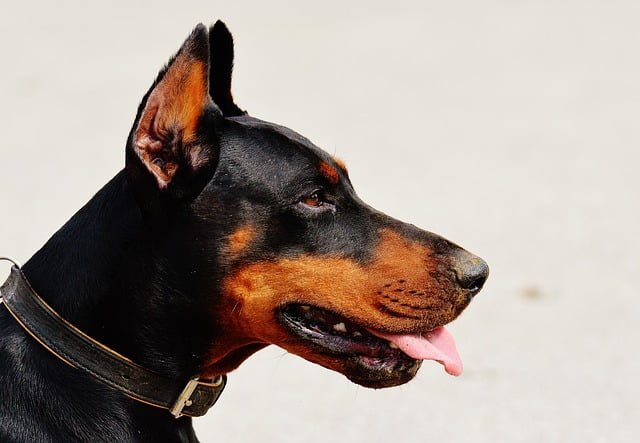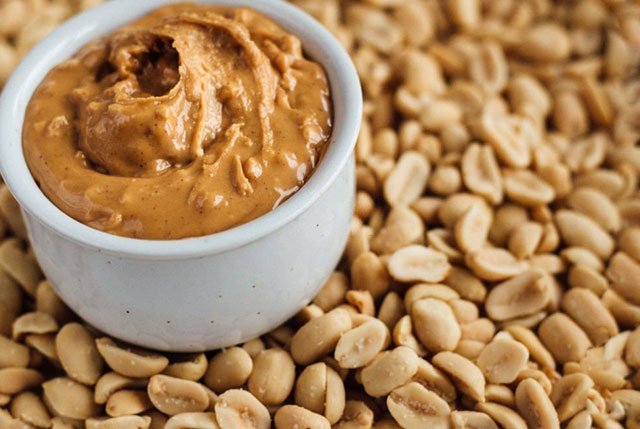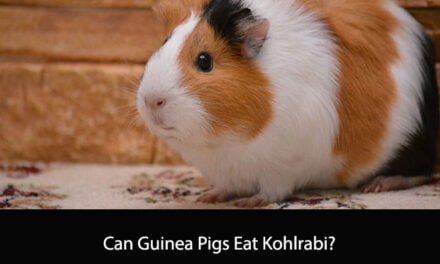Dogs are known for their love of treats, and as a dog owner, you may be wondering if your furry friend can enjoy the popular peanut butter alternative, PB2. PB2 is a powdered peanut butter that has gained popularity among health-conscious individuals due to its lower fat content. However, before sharing your PB2 snacks with your dog, it’s important to know if it’s safe for them to consume.
First and foremost, it’s important to note that peanut butter is safe for dogs in moderation. However, PB2 contains additional ingredients such as sugar and salt, which can be harmful to your dog’s health if consumed in large amounts. Additionally, some dogs may have a peanut allergy, so it’s important to monitor your dog’s reaction to PB2 if you decide to give it to them.
As with any new food, it’s best to introduce PB2 to your dog in small amounts and monitor their reaction. If your dog shows any signs of discomfort or an allergic reaction, such as vomiting or diarrhea, it’s best to discontinue giving them PB2. Overall, while PB2 may be a tasty and healthier alternative to traditional peanut butter for humans, it’s important to approach it with caution when it comes to your furry friend’s diet.

What Is PB2
PB2 is a powdered peanut butter product that is made by pressing roasted peanuts to remove most of the oil and fat. The remaining peanut particles are then ground into a fine powder, which is sold as PB2.
PB2 is a popular alternative to traditional peanut butter because it contains significantly fewer calories and less fat. PB2 is also easier to mix into smoothies, protein shakes, and other recipes, making it a versatile ingredient for those who want to add the flavor of peanut butter to their meals without adding a lot of extra calories.
PB2 is available in both regular and chocolate flavors, and it can be found in most health food stores and online retailers. In addition to its use in recipes, PB2 is also a popular ingredient for athletes and fitness enthusiasts who are looking for a high-protein snack.
Overall, PB2 is a convenient and tasty way to enjoy the flavor of peanut butter without all of the extra calories and fat.
Can Dogs Eat PB2
PB2 is a powdered peanut butter that is commonly used as a low-fat alternative to traditional peanut butter. While it may be a healthy option for humans, it is important to consider whether it is safe for dogs to eat.
PB2 is made from roasted peanuts that have been pressed to remove most of the oil, and then ground into a fine powder. It is often used in smoothies, baked goods, and as a spread on toast or crackers.
While PB2 is not toxic to dogs, it is not recommended as a regular part of their diet. Dogs require a balanced diet that includes protein, fat, and carbohydrates, and PB2 is lacking in some of these essential nutrients.
Additionally, PB2 contains added sugar and salt, which can be harmful to dogs in large quantities. Even small amounts of these ingredients can contribute to obesity, diabetes, and other health problems in dogs.
In conclusion, while PB2 is not toxic to dogs, it is not recommended as a regular part of their diet. If you do choose to give your dog PB2, it should be in moderation and as a treat, rather than as a regular part of their diet. As always, it is important to consult with your veterinarian before making any changes to your dog’s diet.
Benefits of PB2 for Dogs
PB2 is a powdered peanut butter that has become increasingly popular among dog owners. This peanut butter alternative is made by pressing peanuts to remove most of the oil and fat content, resulting in a low-fat, high-protein product. In this section, we will discuss some of the benefits of PB2 for dogs.
Protein Source
PB2 is an excellent source of protein for dogs. Protein is essential for building and repairing tissues, and it is also necessary for the production of enzymes, hormones, and other vital molecules. PB2 contains approximately 6 grams of protein per serving, making it a great addition to your dog’s diet.
Low in Fat
One of the main benefits of PB2 for dogs is that it is low in fat. Traditional peanut butter is high in fat and calories, which can lead to weight gain and other health problems in dogs. PB2, on the other hand, contains only 1.5 grams of fat per serving, making it a healthier option for dogs.
In addition to being low in fat, PB2 is also free from additives and preservatives, which can be harmful to dogs. It is important to note that while PB2 is a healthier alternative to traditional peanut butter, it should still be given to dogs in moderation. Too much of any food can lead to digestive upset and other health problems.
Overall, PB2 can be a great addition to your dog’s diet. It is a good source of protein and low in fat, making it a healthier alternative to traditional peanut butter. As always, it is important to consult with your veterinarian before making any changes to your dog’s diet.
Potential Risks of PB2 for Dogs
PB2 is a powdered peanut butter that is low in fat and calories. It is a popular food item for humans, but can dogs eat PB2? While PB2 may not be toxic to dogs, there are some potential risks that pet owners should be aware of.
Xylitol Toxicity
Some PB2 products contain xylitol, a sugar substitute that is toxic to dogs. Xylitol can cause a rapid insulin release in dogs, leading to hypoglycemia (low blood sugar). Symptoms of xylitol poisoning in dogs include vomiting, loss of coordination, seizures, and even liver failure.
It is important to always check the ingredients list of PB2 products before giving them to your dog. If the product contains xylitol, it should be avoided at all costs.
Allergic Reactions
Dogs can also be allergic to peanuts, just like humans. Symptoms of a peanut allergy in dogs include itching, redness, and swelling around the face and ears, hives, and difficulty breathing.
If your dog has never had peanut butter before, it is best to start with a small amount and monitor them closely for any signs of an allergic reaction. If your dog has a known peanut allergy, PB2 should be avoided altogether.
In conclusion, while PB2 may seem like a healthy and tasty treat for your dog, it is important to be aware of the potential risks. Always check the ingredients list for xylitol and start with a small amount to monitor for any allergic reactions. If in doubt, consult with your veterinarian before giving PB2 to your furry friend.

How to Safely Give PB2 to Dogs
PB2 is a popular peanut butter alternative that is lower in fat and calories. While it is safe for humans to consume, many dog owners wonder if it is safe to give PB2 to their furry friends. In this section, we will discuss how to safely give PB2 to dogs.
Proper Dosage
When giving PB2 to your dog, it is important to follow the proper dosage. Too much PB2 can cause digestive issues, such as diarrhea and vomiting. The recommended dosage is 1 teaspoon of PB2 per 10 pounds of body weight. For example, if your dog weighs 30 pounds, you should give them 3 teaspoons of PB2.
Mixing with Food
One way to give PB2 to your dog is to mix it with their food. Simply mix the recommended dosage of PB2 with your dog’s regular food. You can also mix PB2 with water to create a peanut butter-like consistency. This can be a great way to give your dog a treat while also adding some flavor to their food.
When mixing PB2 with your dog’s food, it is important to make sure that the food is not too hot. PB2 can become sticky and difficult to mix if it is added to hot food. It is also important to mix the PB2 well to ensure that your dog gets an even distribution of the powder.
In conclusion, PB2 can be a safe and healthy treat for your dog when given in the proper dosage and mixed with their food. As with any new food, it is important to monitor your dog for any adverse reactions. If you notice any digestive issues or other symptoms, stop giving PB2 to your dog and consult with your veterinarian.
Alternatives to PB2 for Dogs
If PB2 isn’t the right choice for your furry friend, there are plenty of other options to consider. Here are a few alternatives to PB2 that you may want to try:
Natural Peanut Butter
Natural peanut butter is a great alternative to PB2 for dogs. It doesn’t contain any added sugar or salt, and it’s made from just peanuts and maybe a bit of oil. Just be sure to check the label to make sure it doesn’t contain any xylitol, which can be toxic to dogs.
Pumpkin Puree
Pumpkin puree is a nutritious and tasty alternative to PB2. It’s high in fiber and low in calories, and it’s packed with vitamins and minerals. Plus, many dogs love the taste of pumpkin!
Greek Yogurt
Greek yogurt is another great option for dogs. It’s high in protein and calcium, and it’s a good source of probiotics. Just be sure to choose plain, unsweetened yogurt, as flavored varieties can contain added sugar.
Other Nut Butters
If your dog isn’t a fan of peanut butter, there are plenty of other nut butters to choose from. Almond butter, cashew butter, and sunflower seed butter are all great options. Just be sure to choose a brand that doesn’t contain any added sugar or salt.
Overall, there are plenty of alternatives to PB2 that can be a great addition to your dog’s diet. Just be sure to introduce new foods slowly and in small amounts, and always check with your vet if you have any concerns.
Conclusion
In conclusion, PB2 can be a safe and healthy treat for dogs when given in moderation. However, it is important to note that not all dogs may tolerate it well due to its high fat content. It is always recommended to consult with a veterinarian before introducing new foods to your dog’s diet.
When feeding PB2 to your dog, it is important to make sure that it does not contain any xylitol, a sweetener that is toxic to dogs. Additionally, PB2 should not be used as a replacement for a balanced and nutritious diet for your dog.
Overall, while PB2 can be a tasty and healthy treat for dogs, it is important to exercise caution and moderation when feeding it to your furry friend. By doing so, you can ensure that your dog stays healthy and happy for years to come.

Frequently Asked Questions
Are there any health benefits to giving dogs powdered peanut butter?
PB2 is a lower-fat, lower-calorie alternative to traditional peanut butter, but it still contains protein and healthy fats. However, it’s important to note that dogs don’t need PB2 or any other type of peanut butter to meet their nutritional needs. If you do choose to give your dog PB2, do so in moderation and as a treat rather than a regular part of their diet.
What are the ingredients in PB2 and are they safe for dogs?
PB2 contains roasted peanuts, sugar, and salt. While these ingredients are generally safe for dogs, it’s important to note that PB2 also contains added sugar. Too much sugar can lead to weight gain and other health issues, so it’s best to limit your dog’s intake of PB2.
Can dogs safely consume peanut flour?
Peanut flour is a common ingredient in many dog treats and can be safe for dogs to consume in moderation. However, it’s important to check the label for any added ingredients that may be harmful to dogs, such as xylitol.
What are some peanut butter alternatives for dogs?
If you’re looking for a peanut butter alternative for your dog, there are several options. Some dogs enjoy almond butter or sunflower seed butter, both of which are lower in fat than traditional peanut butter. You can also make your own peanut butter substitute by blending roasted sweet potato or pumpkin with a small amount of coconut oil.
Are there any risks to dogs consuming powdered peanut butter?
While PB2 is generally safe for dogs, it’s important to remember that it still contains added sugar and salt. Too much of either can lead to health issues such as obesity, diabetes, and high blood pressure. Additionally, some dogs may be allergic to peanuts, so it’s important to monitor your dog for any signs of an allergic reaction.
Can dogs have coconut palm sugar in their peanut butter treats?
Coconut palm sugar is a natural sweetener that is safe for dogs to consume in moderation. However, it’s important to remember that all sweeteners should be used sparingly when making treats for your dog. Too much sugar can lead to weight gain and other health issues.





